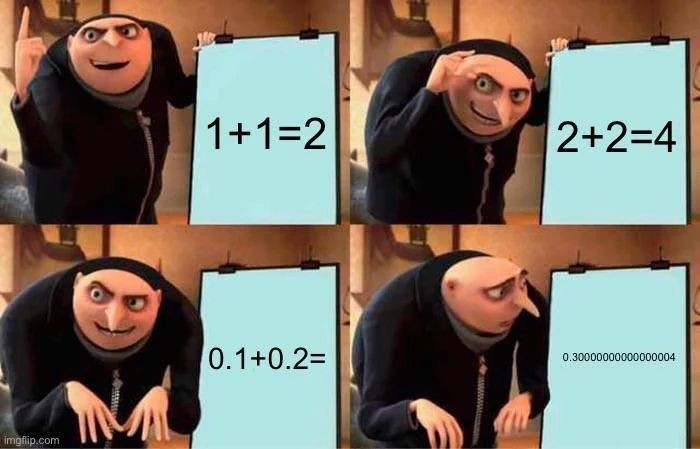this post was submitted on 30 Mar 2024
66 points (97.1% liked)
Programmer Humor
22805 readers
1158 users here now
Welcome to Programmer Humor!
This is a place where you can post jokes, memes, humor, etc. related to programming!
For sharing awful code theres also Programming Horror.
Rules
- Keep content in english
- No advertisements
- Posts must be related to programming or programmer topics
founded 2 years ago
MODERATORS
you are viewing a single comment's thread
view the rest of the comments
view the rest of the comments

Also 1-1 ≠ 0
Are you sure? I've never seen that inequality before.
Edit: and at least python agrees with me
I think it's equal zero in this case. I'd have to look up the IEEE specification to make sure. AFAIK it's just not guaranteed for any numbers and depends on the floating point implementation. A general rule of thumb for programmers is not to use 'equal' with floating point numbers.
The example is wrong, because they used
1.0.But in general
x-xdoes not have to equal0, that is true. I'm pretty sureNanandinfinitywould yield not0.0, butNaninstead.And if you reach x with two different calculations, e.g.
x1 = a - b - candx2 = a - c - bit is certainly not guaranteed thatx1 - x2 == 0.0This is correct. Additionally, if x is NaN, then x ≠ x.
It does.
x-x == 0is true unlessxis NaN or infinity.Positive or negative zero?